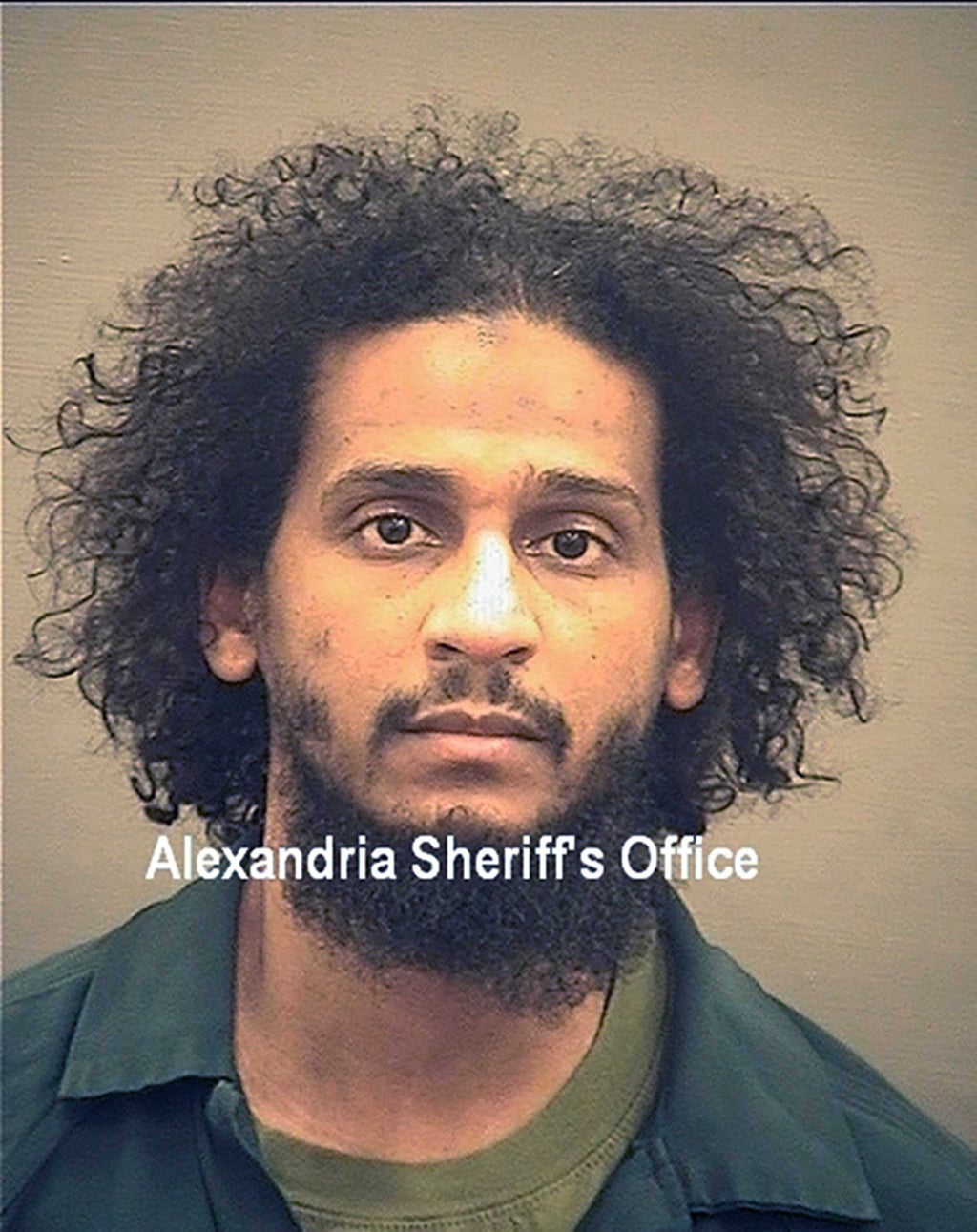
Federico Motka's abductors greeted him in English after he and his colleagues were kidnapped near a refugee camp on the Turkish border: “Welcome to Syria, you mutt.”
For the Italian aid worker, it was the beginning of 14 months of brutality at the hands of the Islamic State.
Motka testified about the ordeal Thursday at the terrorism trial of El Shafee Elsheikh, a British national charged with taking a leading role in an Islamic State kidnapping scheme that took more than 20 Westerners hostage between 2012 and 2015.
Four Americans — journalists James Foley and Steven Sotloff and aid workers Peter Kassig and Kayla Mueller — were among them. Foley, Sotloff and Kassig were decapitated. Mueller was forced into slavery and raped repeatedly by the Islamic State’s leader, Abu Bakr al-Baghdadi, before she too was killed.
Motka is the first surviving hostage to testify at Elsheikh's trial in Alexandria, Virginia,
Born in Trieste, Italy, Motka said he spent much of his childhood in the Middle East and went to boarding school in England. He was an aid worker surveying the needs of refugee camps in March 2013 when he and a colleague, Briton David Haines, were captured and taken hostage.
Motka testified that for the first month of captivity, he was only only occasionally mistreated, but that mistreatment frequently came at the hands of three captors hostages dubbed “the Beatles” because of their British accents. They learned to speak surreptitiously about their captors, who wore mask and took pains to conceal their identity, since they never knew what would set them off. A dispute over bathroom hygiene prompted a particularly intense beating, he said.
“They said I was a posh wanker because I went to boarding school,” Motka testified. “They said I was arrogant, and they were going to take me down a peg.”
Motka's use of the term “posh wanker” set off a brief period of uncomfortable laughter in the courtroom, when the judge interrupted and asked what the phrase means, forcing Motka to explain the term's vulgar meaning in British idiom.
The British accents and phraseology are an important part of the case, though, as prosecutors seek to prove that Elsheikh is indeed one of the Beatles who tortured hostages, even though the Beatles took great pains to conceal their faces. Motka testified that there were at least three Britons in the group of captors, and the hostages nicknamed them “John,” “George” and “Ringo.”
Life became far worse about a month into his captivity when he was blamed for a Syrian captive's efforts to escape from an adjacent cell. He was beaten that night with a rubber cable for an hour, and transferred to a facility the hostages dubbed “the box.” He was warned before the transfer: “You don't know punishment yet.”
He said he and other hostages at the box then endured a lengthy “regime of punishment” that included regular beatings and forced stress positions. “George,” another man named Abu Mohamed and a third nicknamed “the punisher" regularly tortured them, Motka said.
“They played lots of games with us,” Motka said, maintaining composure as he clearly struggled with the emotions of describing his captivity. “They gave us dog names. We needed to come and immediately respond” to the dog name to avoid a beating.
Motka was not released until May 25, 2014. His 14 months in captivity were the longest of any hostage in the group.
Prosecutors have said in court that Elshiekh is the one who was nicknamed Ringo.
Defense lawyers, though, have highlighted the difficulties that hostages have in formally identifying each of their captors, who routinely wore masks that covered all but their eyes.
In opening statements, prosecutors referenced only three British nationals — Elsheikh, his longtime friend Alexenda Kotey, and Mohammed Emwazi, who frequently carried out the role of executioner and was known as “Jihadi John.”
Emwazi was killed in a drone strike, and Kotey was captured alongside Elsheikh and also brought to Virginia to face trial. Kotey pleaded guilty last year in a plea bargain that calls for a life sentence.
Jurors also heard testimony Thursday from Danish hostage negotiator Jens Serup, who testified about prolonged efforts to secure the release of Daniel Rye Ottosen in exchange for 2 million euros.
The jury saw photos of huge bruises on Ottosen's arm and back after he was finally released. Serup testified that the captors told Ottosen the beating was a “farewell present not to forget them."







